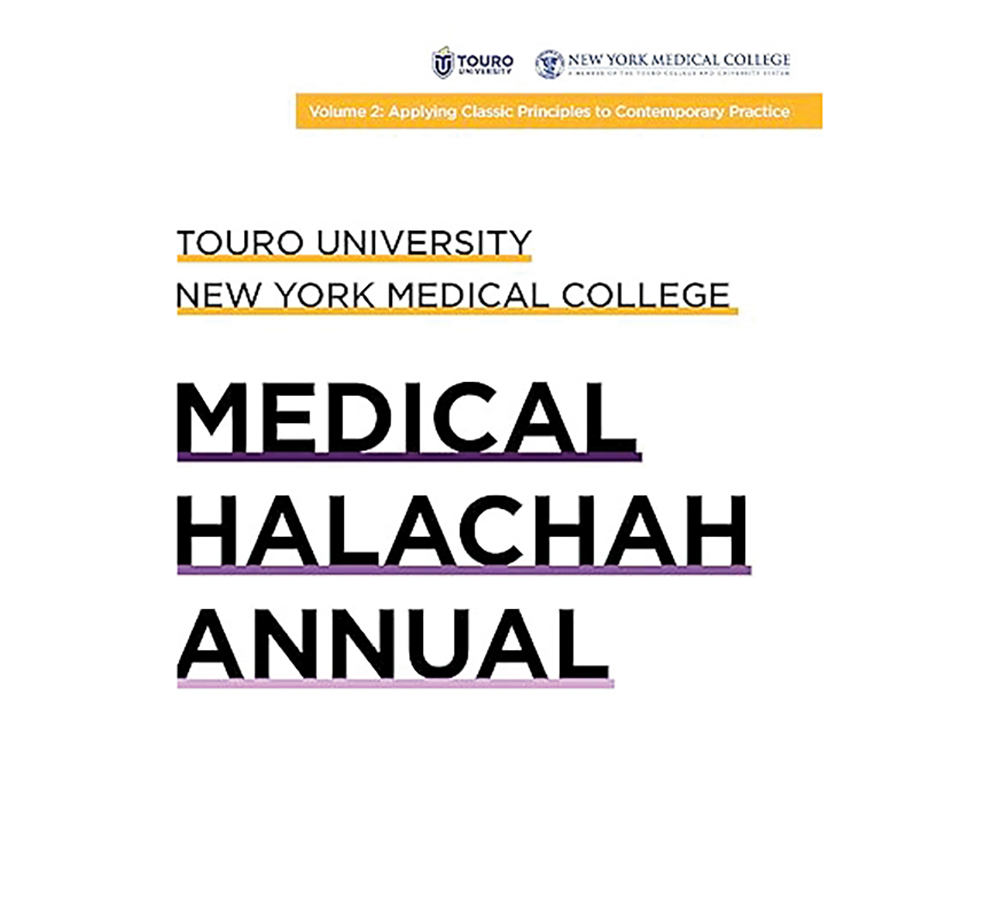
Reviewing: “Medical Halachah Annual, Volume 2: Applying Classic Principles to Contemporary Practice,” Touro University. Mosaica Press. 2024. Hardcover. 176 pages. ISBN-13: 978-1961602441.
One of the most enigmatic quotes in the Talmud is found in Kiddushin 82a, where it says that the best doctors go to hell. A more exact translation could be that good doctors go to hell. The message is that the stakes in medicine are so high, with lives at risk, that it’s not enough to be just a good doctor. Those who want to practice medicine must be great doctors.
Also, when it comes to medicine, rabbis also need to stay on the cutting edge, as they often give advice that could be the difference between life and death. Rabbi Jason Weiner makes that point eminently clear in “Jewish Guide to Practical Medical Decision-Making” when he writes of a rabbi who was asked to render an end-of-life decision but answered the question based on a method of oxygen delivery that hadn’t been used in decades. The rabbi was left in a quandary when faced with the new reality.
Like the rabbi, who has to stay current on medical issues, being a great doctor requires staying current. In “Medical Halachah Annual, Volume 2: Applying Classic Principles to Contemporary Practice” from Touro University, a number of medical and rabbinic professionals bring to the written pages some very topical issues. I reviewed Volume 1 last year, and the current volume continues to impress.
Volume 2, edited by Dr. Edward Lebovics, MD, opens with the sobering observation that medical training does not immunize a physician from degenerating into a sadistic, amoral mechanic. The ruthlessness of medical doctors such as Josef Mengele and other Nazi doctors is well documented.
He writes that it is not a coincidence that several of the most brutal terrorist leaders in recent memory were physicians. This dubious list includes surgeon Ayman al-Zawahiri of al-Qaeda; George Habash of the Popular Front for the Liberation of Palestine, who graduated first in his class from medical school; and ophthalmologist Bashar al-Assad, the current president of Syria.
Medicine offers the practitioner a most virtuous life, with opportunities to empathize with suffering, relieve pain and save lives. But when misguided by prejudice, such as the preceding doctors, medical training can enable the most sadistic, cruel acts ever perpetrated.
What the “Medical Halachah Annual” volumes do so well is analyze medical issues through the prism of halacha, ensuring that the lofty potential for good in medical practice will be realized.
This volume has numerous articles by both medical and non-medical professionals. In a fascinating article on the topic of yesuvei data (settling the mind), attorney Aryeh Berkowitz of the global law firm Fried Frank writes that the rabbis of the Talmud knew that ignoring the non-physiological condition of a seriously ill patient could prove fatal. For example, allowing a husband to accompany his wife to the hospital for labor is seen as one of the classic examples of yesuvei data.
In his fascinating entry on cochlear implants and other devices augmenting biological speaking and hearing, Rabbi Dr. Yosef A. Cohen writes parenthetically that the definition of an echo is quite complicated and perhaps necessarily seems to have been ignored by most poskim.
This is not a trivial topic, as the issue of kol havurah, often translated as “the sound of an echo,” has significant halachic repercussions. It usually comes up in the context of the shofar, of which kol havurah can invalidate the required shofar blasts on Rosh Hashanah. Cohen writes that if one were to understand the Mishna in Rosh Hashanah 27b literally, that would make it very difficult to fulfill the obligation of shofar indoors.
The volume closes with psychologist Naomi Klapper writing about the legalization of marijuana and its impact on mental health. When it comes to halacha and marijuana, Rav Moshe Feinstein wrote over 50 years ago that its usage was a violation of several Torah precepts. Forward to 2021, and an analysis found that his concerns were more troubling now than they were when he wrote in 1973. And Rav Hershel Schacter wrote in 2022 on the prohibition of the usage of recreational marijuana.
Rabbi Joseph Soloveitchik said that if he were to add to Maimonides’s 13 Principles of Faith, his 14th principle would be that the values and legal constructs of the Torah are timeless and have absolute relevance to every generation and location. In each of the fascinating essays in “Medical Halachah Annual, Volume 2,” the authors show the everlasting relevance of halacha to the field of medicine.
While by a number of physicians, and great physicians at that, this fascinating volume shows the timeless wisdom of Torah and how, no matter how cutting-edge the medical technology is or how difficult the medical challenge is, halacha is there to deal with it.
Ben Rothke lives in New Jersey and works in the information security field. He reviews books on religion, technology, philosophy and science. Follow him on Twitter at @benrothke. His new book was recently published: “The Definitive Guide to PCI DSS Version 4: Documentation, Compliance, and Management.”








